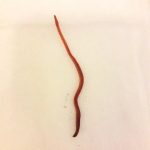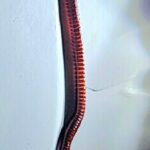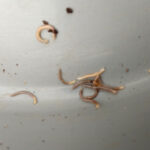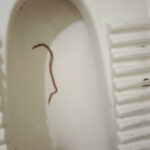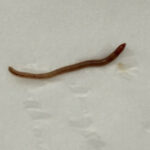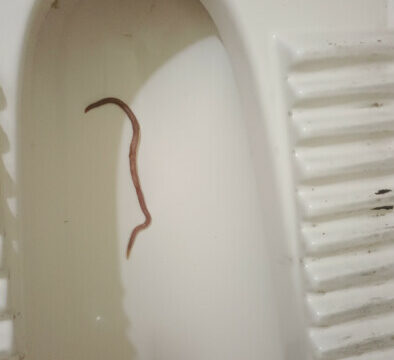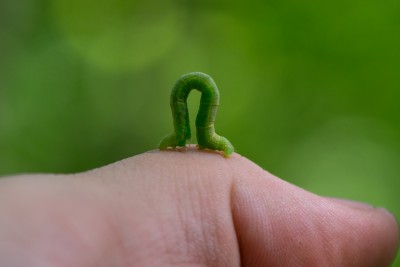
“My garden plot has many thriving earth worms but, unfortunately, an infestation of grubs”, begins Ken in his submission. He did not attach any photos. “My plan is to swap out the infested soil for a new soil/compost mixture, while saving as many of the earthworms as I see while doing so, then adding them to the new soil. My question: is it possible that the earthworms would transfer grub eggs to the new soil by either having them attached to their bodies or from having ingested them? Thanks, I look forward to your answer.” To start off, we want to thank Ken for the fascinating question, one that fortunately does not require the addition of a photograph.
In short, we suppose it is possible for earthworms to transfer grub eggs to the new soil, though how exactly they do that is somewhat of a mystery. Sure, the eggs could get stuck to their skin, and thereby transfer the eggs to the new soil, but the easy fix for this is to wash the earthworms off before transferring them to the new soil. Now, whether or not they can transfer the eggs via excretion is a different question. In addition to a variety of organic debris that earthworms consume, they do also consume insect eggs, which may very well include “grub eggs” (to clarify, ‘grubs’ is an umbrella term often applied to beetle larvae, so when we say ‘grub eggs’, we actually mean beetle eggs). However, whether or not the eggs would survive digestion is a question we do not have the answer to.

When it comes to parasites (which beetle larvae are most definitely not, at least to humans), their eggs will survive intermediary hosts, meaning that the eggs will get passed to the ultimate host via the digestive process of another. For example, some flukes (a type of parasitic flatworm) will first infest cows, and then humans. Of course, since beetles are not parasites, we cannot necessarily apply the same logic here. If Ken is really worried about this, we would suggest also removing the earthworms, and buying new ones. Alternatively, he could first transfer the earthworms to an experiment of sorts: a small container of soil and organic debris (as worm food) and see if any grub larvae spawn as a result of the earthworms being there. If they do not, then they are likely safe to transfer over to his garden.
In conclusion, it is possible that earthworms will transfer eggs over to the new soil, but there are ways to prevent it. We hope Ken finds this helpful, and we wish him, as well as his garden plot, the very best!
All About Worms is always free, always reader-supported. Your tips via CashApp, Venmo, or Paypal are appreciated! Receipts will come from ISIPP Publishing.
You might also find these guys interesting!




